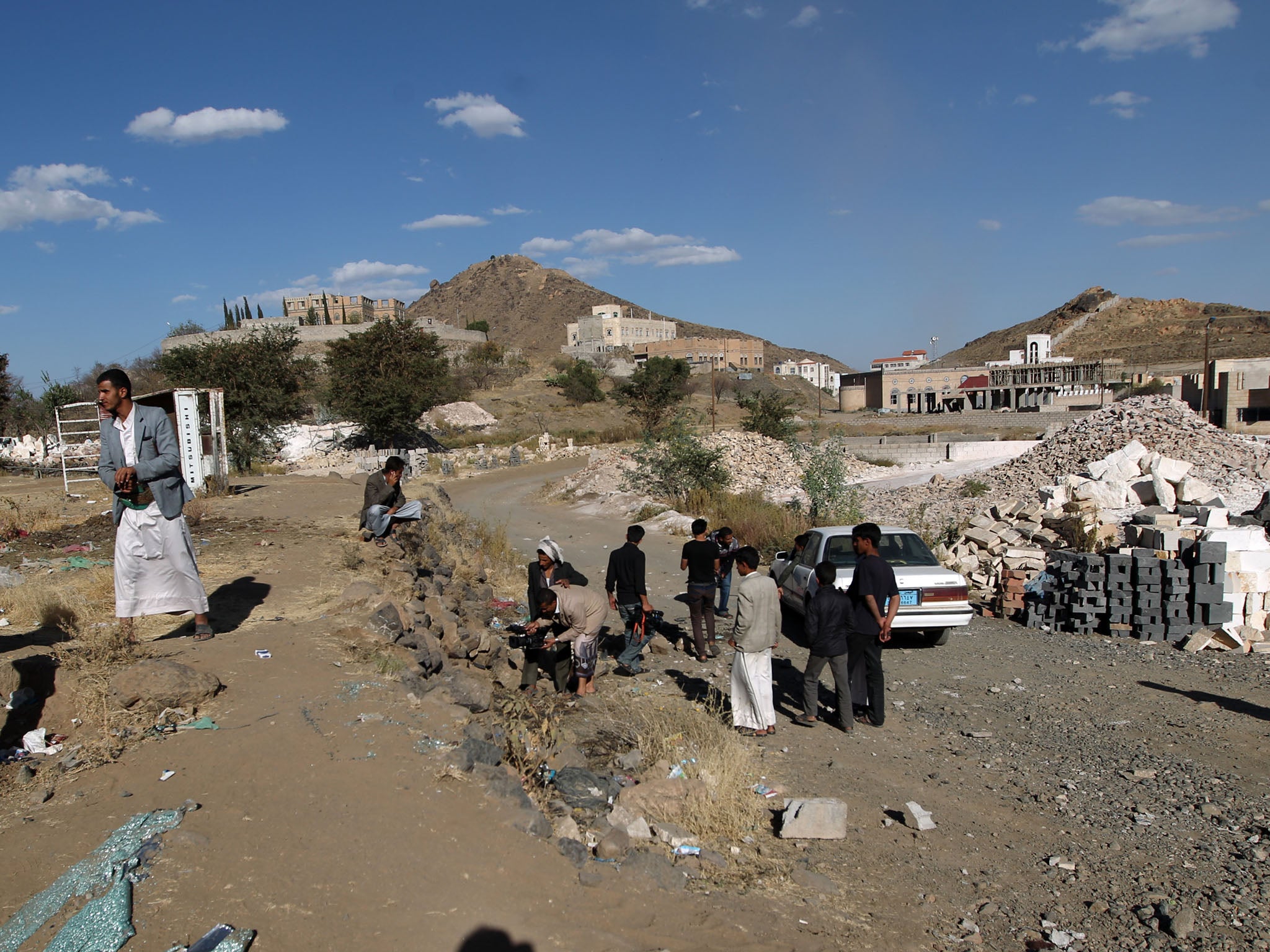Saudi diplomat shot dead in Yemeni capital

Your support helps us to tell the story
From reproductive rights to climate change to Big Tech, The Independent is on the ground when the story is developing. Whether it's investigating the financials of Elon Musk's pro-Trump PAC or producing our latest documentary, 'The A Word', which shines a light on the American women fighting for reproductive rights, we know how important it is to parse out the facts from the messaging.
At such a critical moment in US history, we need reporters on the ground. Your donation allows us to keep sending journalists to speak to both sides of the story.
The Independent is trusted by Americans across the entire political spectrum. And unlike many other quality news outlets, we choose not to lock Americans out of our reporting and analysis with paywalls. We believe quality journalism should be available to everyone, paid for by those who can afford it.
Your support makes all the difference.Gunmen killed a Saudi diplomat and his Yemeni bodyguard on a busy street in the capital here Wednesday, the latest in a string of assassinations of government figures in this impoverished Middle Eastern country.
The diplomat, a military attache in the Saudi Arabian Embassy here, was inside his four-wheel-drive vehicle about noon when another vehicle blocked the road, according to a Yemeni security official. The gunmen stepped out of their vehicle and began firing into the diplomat's car.
"Both the diplomat and his bodyguard were shot in the head," said the official, who spoke on the condition of anonymity because he was not authorized to speak to the media.
A spokesman at the embassy could not be reached for comment. The Saudi Press Agency, Saudi Arabia's official media arm, identified the diplomat as Sgt. Khalid al-Onizi, citing an official with the Saudi Foreign Ministry.
In March, gunmen kidnapped Saudi Arabia's deputy consul in the port city of Aden. Last month, a masked gunman shot and killed a Yemeni security official who worked for the U.S. Embassy in Sanaa. Both attacks bore the hallmarks of al-Qaida militants.
Saudi Arabia, which shares its southern border with Yemen, is playing a key role in helping the Yemeni government and the United States battle al-Qaida in the Arabian Peninsula, the terrorist network's Yemeni affiliate. Both Washington and Riyadh consider the group a threat to their political and economic interests in a strategic region with vital oil-shipping lanes.
AQAP, as the group is known, has attempted to attack the United States on several occasions since 2009, including sending parcel bombs on flights into the country in 2010. AQAP was formed by the merger of al-Qaida's Yemeni and Saudi Arabian branches in January 2009.
A U.S.-backed Yemeni offensive, supported by Saudi Arabia, this past summer drove AQAP out of parts of southern Yemen, but the militants have retaliated with a shadowy war, staging suicide attacks and killing senior government and military officials.
In 2009, Saudi Arabia used fighter jets to bomb Yemeni Shiite Houthi rebels engaged in a civil war with Yemen's government, claiming that the rebels had crossed into the country. Saudi Arabia, a Sunni Muslim power, is concerned that the Houthi could create a Shiite state, backed by Iran's theocracy, along its borders.
- - -
Ali Almujahed in Sanaa contributed to this report.
Join our commenting forum
Join thought-provoking conversations, follow other Independent readers and see their replies
Comments